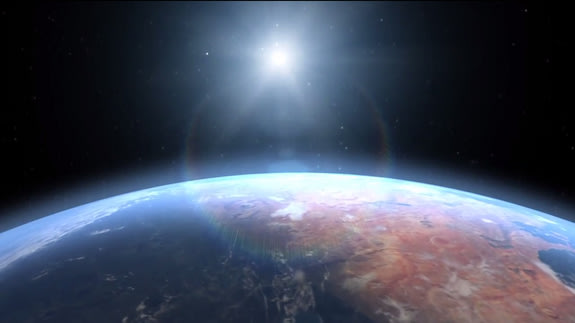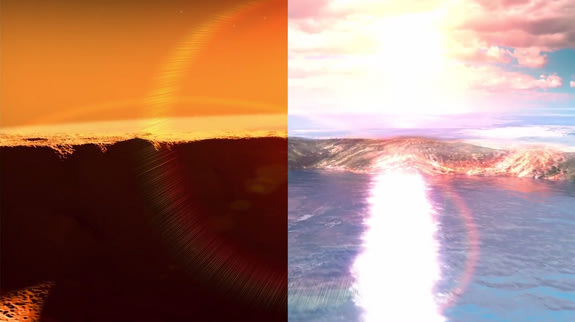Interesting since this is saying, virtually, what other scientists and astronomers were saying 60+ years ago before scientific dogma set in. Could Science be learning that per cognitionem veritas -through knowledge the truth not "dogma rules"?
https://uk.news.yahoo.com/wet-mars-red-planet-lost-oceans-worth-water-191828353.html?vp=1#XfmRiUQ
New maps of water in the atmosphere of Mars reveal that the Red Planet might once have had enough to cover up to a fifth of the planet, researchers say
New maps of water
in the atmosphere of Mars reveal that the Red Planet might once have had
enough to cover up to a fifth of the planet, researchers say.
Although the Martian surface is
now cold and dry, there is plenty of evidence suggesting that rivers,
lakes and seas covered the Red Planet billions of years ago. Since there
is life virtually wherever there is liquid water on Earth, some
researchers have suggested that life might have evolved on Mars when it
was wet, and life could be there even now, hidden in subterranean
aquifers. [The Search for Water on Mars in Photos]

This still from a NASA video offers a glimpse of what ancient Mars may have looked like from space (Space.com)
Normally, water molecules are
each made up of two hydrogen atoms and one oxygen atom. However, one or
both of these hydrogen atoms can be replaced with deuterium atoms to
create deuterated water. (Deuterium, like hydrogen, has one proton, but
also one neutron.)
Deuterated water is heavier than
normal water, so it behaves differently. For example, it can be easier
for normal water to escape Mars, since it can vaporize more easily in
the Martian atmosphere. Solar radiation can break this water up into hydrogen and oxygen, and the hydrogen can then escape into space.
By studying the current ratio of
deuterium to hydrogen in Martian water, researchers suggested they could
estimate how much total water the Red Planet used to have. They
constructed new maps of the ratio between hydrogen and deuterium in the
water in the Martian atmosphere using data gathered from 2008 to 2014 by
the Very Large Telescope in Chile, and the Keck Observatory and NASA's InfraRed Telescope Facility in Hawaii.
They found the ratio between
deuterated water and normal water in some regions of Mars was higher
than thought, typically seven times higher than in Earth's oceans. This
high ratio suggests that Mars has lost a great deal of water over time.
Based on their findings, the
scientists estimate that Mars might have had enough water to cover up to
20 percent of the planet about 4.5 billion years ago. They suggest the
Red Planet could still possess substantial underground reservoirs of
water.
The scientists detailed their findings online today (March 5) in the journal Science.


No comments:
Post a Comment